 W
WA Breakout clone is a sub-class of the "bat-and-ball" genre. The genre is named for the dynamics of the player-controlled block, called a "bat" or a "paddle", upon which the game is based, which hits a ball towards another player's bat or different objects such as colored tiles. The term brick buster, coined in the early 2000s, mostly refers to more modern games.
 W
W3D Brick Breaker Revolution is a game for iOS and Windows Phone 7 developed by Digital Chocolate and released on March 27, 2009 for iOS. The game was ported to Windows Phone 7 and released on December 1, 2010. The Windows Phone 7 version offers Leaderboard and Achievement support as a title for Xbox Live-enabled games.
 W
WAgent X II: The Mad Prof's Back is a computer game released in 1987 for the ZX Spectrum, Amstrad CPC and Commodore 64. It is the follow-up to the ZX Spectrum game Agent X.
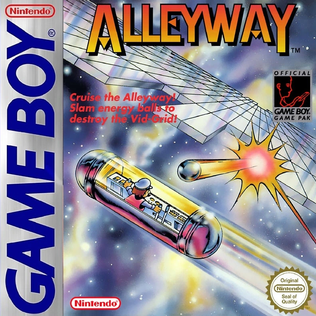 W
WAlleyway is a 1989 video game developed by Nintendo and Intelligent Systems and published by Nintendo as a global launch title for the Game Boy. It is a Breakout clone and one of the first four games developed and released for the system. The game was released first in Japan in 1989, in North America later that year, and in Europe in 1990. It was later re-released via online distribution for the Nintendo 3DS Virtual Console in June 2011.
 W
WAmegas is a clone of Arkanoid written by Guido Bartels for the Amiga and published by reLINE Software in 1987.
 W
WArkanoid is a 1986 block breaker arcade game developed and published by Taito. In North America, it was published by Romstar. Controlling a paddle-like craft known as the Vaus, the player is tasked with clearing a formation of colorful blocks by deflecting a ball towards it without letting the ball leave the playfield. Some blocks contain power-ups that have various effects, such as increasing the length of the Vaus, creating several additional balls, or turning the Vaus into a laser cannon.
 W
WArkanoid DS is a breakout video game developed by Taito and published by Square Enix for the Nintendo DS. It was released on June 18, 2008.
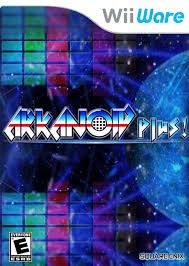 W
WArkanoid Plus! is a Breakout clone game released for WiiWare on September 28, 2009.
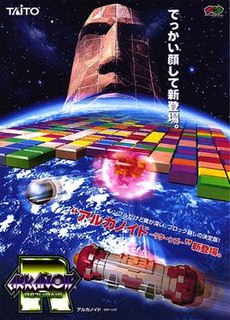 W
WArkanoid Returns is an arcade game released by Taito in February 1997 as part of the Arkanoid series. It is the fourth overall, and third to be released in arcades. The game was ported to the PlayStation later the same year, with an updated home release being released afterwards titled Arkanoid R 2000.
 W
WArkanoid vs Space Invaders is a paid mobile game developed by Taito and published by Taito in Japan and Square Enix worldwide. As the name suggests, it is a crossover between Arkanoid and Space Invaders and has gameplay elements adapted from both games. The game was released without any prior announcement by Square Enix internationally on May 17, 2017.
 W
WArkanoid: Doh It Again is a Super Nintendo Entertainment System game released by Taito Corporation in 1997 in Japan, and by Nintendo in Australia, the US, and the UK. It was developed as a sequel to the original 1986 arcade release of Arkanoid.
 W
WArkanoid - Revenge of Doh is an arcade game released by Taito in 1987 as a sequel to Arkanoid.
 W
WBachelor Party is an adult-themed video game for the Atari 2600 developed by Mystique.
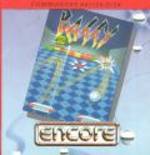 W
WBatty is a bat-and-ball, Breakout clone-style video game, published by Elite in 1987 and available for the ZX Spectrum, Commodore 64 and Amstrad CPC. The game was initially released in late 1987, both as part of the 6-Pak Vol. 2 compilation and as a free cover-mounted cassette with the October 1987 issue of Your Sinclair magazine. It was later a standalone commercial release in its own right on Elite's budget "Encore" label.
 W
WBlock Breaker Deluxe is a video game developed by Gameloft Romania for mobile phones. It was also released for iPod, Windows PCs, the N-Gage platform, the Nintendo DS as part of the Midnight Play Pack collection, and the Wii as a WiiWare game. Gameloft claims it is the best selling arcade wall breaking game on mobile platforms, with over 8 million copies sold.
 W
WBlock Breaker Deluxe 2 is a sequel of Block Breaker Deluxe video game developed by Gameloft for mobile phones. It was also released in operating systems for iOS and Android. Gameloft claims it is the most played arcade wall breaking on mobile platforms. The game is not available in WiiWare, N-Gage, and Windows PCs unlike in the original.
 W
WBolo is a 1987 Breakout clone written for the Atari ST using the high resolution monochrome monitor. It was later remade for Macintosh and MS-DOS. Bolo was written by Meinolf Schneider, better remembered for his Oxyd games.
 W
WBomb Bee is a Japanese arcade game that was released by Namco in 1979. It is the sequel to Gee Bee, which was released in the previous year.
 W
WBreak 'Em All, known as Brick 'Em All DS in Europe, is an Arkanoid clone released in 2005 for the Nintendo DS. The game features several single player modes, as well as single-cart multiplayer for up to 8 players. The game utilized the system's touch screen to control the paddle, as well as activate power-ups. Power-Ups could also be activated by pressing up on the D-Pad or by pressing the X Button.
 W
WBreakQuest is a multi-platform brick buster game created by Spanish studio Nurium Games, later ported to Mac OS by Red Marble Games. It was released on November 16, 2004, and was published by Stardock as part of TotalGaming.net. PSP Minis version developed and published by Beatshapers released in Europe/Asia with PSP Go launch, October 1, 2009. It was later released in the North America region for PSP Go on March 18, 2010. As of 2016, the game is now free for PC on the Nurium Games website with the key: YKGNL6-WGUMQ9-WRFH16-XWXPLB-ECRHG7-4DCDEP
Circus is an arcade game released by Exidy in 1977. The game is a re-themed variant of Atari's Breakout, where the player controls a seesaw and clown in order to pop all the balloons in the level. The game has been copied and released under different names by numerous other companies in both the United States and Japan.
 W
WCosmic Smash (コズミックスマッシュ) is an arcade game for the Sega NAOMI arcade system, later ported to the Dreamcast console. It is a futuristic combination of squash and Breakout, and is a single player game. It is one of the few Dreamcast games to be released in a DVD-style case, rather than a jewel case.
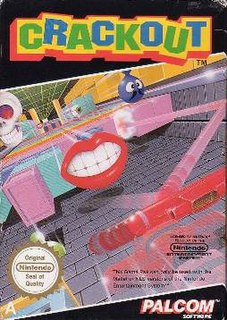 W
WCrackout is a video game by Konami that was released in Japan for the Family Computer Disk System on December 13, 1986, and in Europe and Australia for the Nintendo Entertainment System in 1991. It is a Breakout clone, with some additional elements not normally found in other games in the genre.
 W
WCutie Q is a 1979 block breaker/video pinball hybrid arcade game developed and published by Namco in Japan. The player controls a set of paddles with a rotary knob, the objective being to score as many points possible by deflecting a ball against blocks, ghosts, spinners and other objects on the playfield. It was designed by Shigeru Yokoyama, with spritework done by Toru Iwatani. It is the third and final game in the Gee Bee trilogy.
 W
WDevilish is an action video game that was released for the Sega Game Gear.
 W
WDevilish: Ball Bounder is a breakout clone action video game developed by Starfish for the Nintendo DS. It is the third entry in the Devilish series, released 13 years after its predecessor, Devilish: The Next Possession for the Sega Genesis. Like its predecessor, it is a game in the same genre of Breakout and Arkanoid, with elaborate fantasy visuals.
 W
WDoughlings: Arcade is a Breakout game developed and published by Hero Concept. Originally planned as a mobile game, it was released for Microsoft Windows, Nintendo Switch, and Xbox One in 2018 and PlayStation 4 on May 9, 2019.
 W
WDrop Off is a Breakout clone by Data East. The game was published in 1990 for the PC Engine under the title Drop Rock Hora Hora, and subsequently saw a stateside release for the TurboGrafx-16 console as Drop Off.
 W
WDX-Ball 2 is a brick buster game for Microsoft Windows, developed by Longbow Games. As a follow up to DX-Ball by Michael P. Welch, the sequel is foremost remarked by the introduction of its 16-bit high-colour engine, presenting textured bricks and background graphics in vivid colours. The game also features two new Power-Ups, an easy to play "Kid-Mode", and a hotseat multiplayer mode, alongside an original soundtrack by SideWinder. DX-Ball 2 also introduces the feature of board-set selection, allowing the player to select between different sets of boards to play. The free demo thereby comes packed with a total of 24 boards divided into 6 board-sets of 4 boards search. Additional board packs can then be installed for more boards, whereas Board Pack 1 will expand the demo board-sets to 25 boards each, for a total of 150 boards. While a total of five board packs were released for the game, DX-Ball 2 was eventually succeeded by Rival Ball in 2001. A 20th Anniversary edition was announced on August 23rd, 2018 and was released on November 21st, 2018, which features a new high resolution boardset, new power ups, online leaderboard and boardset editor.
 W
WField Goal is an arcade game released in 1979 by Taito. It is a clone of the game Breakout, where the player must use the rotary knob to control a paddle and hit the ball into the red, yellow and blue helmets on the screen. Each time a row of helmets is cleared out, a new row will appear in its place. If the player hits the orange area towards the top of the screen, it will decrease the size of the player's paddle. Sometimes a football player will appear, and if the ball hits him, the player will earn bonus points.
 W
WFireball is a Breakout clone video game developed by Arcadia for the Atari 2600. The game was released on cassette tape and required the Starpath Supercharger add-on to play.
 W
WFirestriker is an overhead view action video game that was released on December 17, 1993 in Japan and on October 1994 in North America for the Super Nintendo Entertainment System.
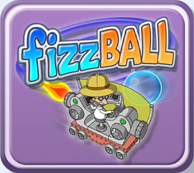 W
WFizzball is a cross-platform computer game by American studio Grubby Games in which the player bounces the titular "fizzball" around the screen. The game was a finalist for an award at the 2007 Independent Games Festival. It was later ported to the Wii, under the name Doctor Fizzwizzle's Animal Rescue.
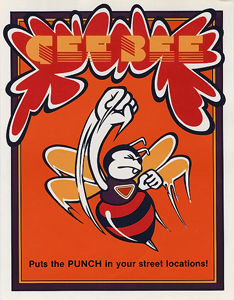 W
WGee Bee is a block breaker/video pinball hybrid arcade game developed and published by Namco in 1978. The player controls a set of paddles with a rotary knob, with the objective being to score as many points as possible by deflecting a ball against bricks, pop bumpers and other objects in the playfield. It was developed by Toru Iwatani, known as the creator of Pac-Man and Pole Position. Outside Japan, it was published by Gremlin Industries.
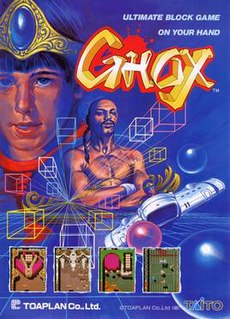 W
WGhox is an action arcade video game developed by Toaplan and published by Taito in Japan and Europe on November 1991. It is notable for being one of the few titles by Toaplan that has not received any official port to home consoles as of date. Taking place in a fantasy world where the evil magician known as Jagula sealed the goddess Lucia in the netherworld, players assume the role of Axis and Bilious in an effort to defeat both Jagula and the unleashed evil spirits from the netherworld. As of 2019, the rights to the game are owned by Tatsujin, a company founded in 2017 by former Toaplan member Masahiro Yuge and now-affiliate of Japanese arcade manufacturer exA-Arcadia alongside many other IPs from the defunct studio.
 W
WHorizons: Software Starter Pack is a software compilation for the ZX Spectrum, designed by Psion Software Ltd and published by Sinclair Research Ltd in 1982.
 W
WHotShot is a pinball/breakout game published in 1988 for 8-bit and 16-bit platforms.
 W
WHyperball is a clone of the 1986 arcade game Arkanoid created for the Acorn Electron and BBC Micro. It was released as part of the compilation Play It Again Sam 13 in 1990.
 W
WKirby's Block Ball is a 1995 action video game, a spin-off from the Kirby series for the Game Boy portable console. It is a Breakout clone; the player controls paddles along the screen's edge to knock a bouncing ball, Kirby, into destructible bricks. The game's 55 levels include power-ups, bonus rounds, and minigames. Kirby's Block Ball was developed by HAL Laboratory and Nintendo R&D1. The team spent half a year revising the gameplay to match Kirby's signature characteristics. Kirby's Block Ball was published by Nintendo first in Japan in 1995, later in Europe, and last in North America in 1996.
 W
WKrakout is a Breakout clone that was released for the ZX Spectrum, Amstrad CPC, BBC Micro, Commodore 64, Thomson computers and MSX platforms in 1987. One of the wave of enhanced Breakout variants to emerge in the wake of Arkanoid, its key distinctions are that gameplay is horizontal in layout, and that it allows the player to select the acceleration characteristics of the bat before playing. It was written by Andy Green and Rob Toone and published by Gremlin Graphics. The music was composed by Ben Daglish.
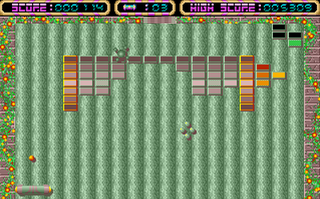 W
WKrypton Egg is a block breaker game developed in 1989 by Alexandre Kral on Atari ST and Amiga 500/600 (OCS/ECS).
 W
WMagic Orbz is a game for the Sony PlayStation 3 video game console. It is based on the PC game, Magic Ball 3. The game was released in January 2009 and was followed by two additional downloadable content packs.
 W
WMonkey Magic is a video game released in arcades by Nintendo in 1979. It is a Breakout clone and one of Nintendo's earliest arcade games. Some sources claim that Ikegami Tsushinki also did design work on Monkey Magic. Players control a paddle to hit the ball at a large number of blocks shaping a monkey's face. Players can also earn different numbers of points by catching blocks that fall, as well as hitting the ball in different places.
 W
WNervous Brickdown is a breakout clone video game developed by the French team Arkedo Studio and published by Eidos Interactive for Nintendo DS.
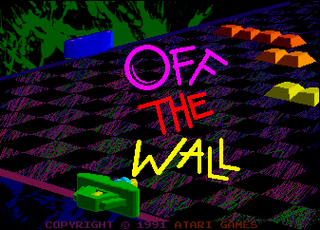 W
WOff the Wall is an arcade game produced by Atari Games and released in North America in 1991. A remake of Breakout, it has a much wider variety of gameplay elements of the original. Most notably, it models spin on the ball. Off the Wall supports up to three players simultaneously. The game's graphics include many backgrounds modeled after modern abstract art.
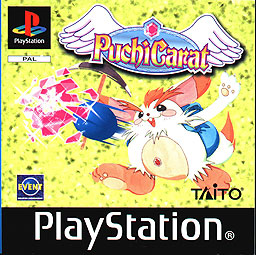 W
WPuchi Carat is a 1997 arcade game by Taito.
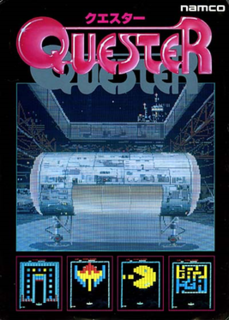 W
WQuester is a 1987 block breaker arcade game developed and published in Japan by Namco. Controlling a paddle-like craft, the player is tasked with clearing each stage by deflecting a ball towards a formation of bricks towards the top of the screen. Power-up items are hidden in some blocks, which can increase the size of the player's paddle, a barrier that prevents the ball from moving off the screen, and a forcefield that will release eight other balls when touched. It ran on the Namco System 1 arcade board.
 W
WRicochet Infinity is the fourth installment of the Ricochet video game series by Reflexive Entertainment. As its preceding titles Ricochet Xtreme (2001), Ricochet Lost Worlds (2004) and Ricochet Lost Worlds: Recharged (2004), it is a Breakout clone. As in Atari's Breakout game, the purpose of each stage is destroy all the bricks on the screen. Like the rest of the games in the Ricochet series, Infinity is more stylized than Breakout, adding various power-ups and brick variations.
 W
WRicochet Lost Worlds was developed by Reflexive Entertainment and is the sequel to Ricochet Xtreme. It features several new bricks, power-ups and background art. It also has the new "ring" feature, where you try to collect all the rings on each level. If you collect all five rings on every level, you become "Ring Master" and get the trophy at the end of the game. It is possible to beat the game without getting every ring, but it is less challenging. Around 7 December 2017, the official website that hosted all user-made levels and the forums for both the Ricochet and the Big Kahuna series were permanently shut down because they were no longer sustainable to run.
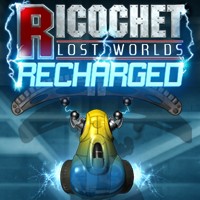 W
WRicochet Lost Worlds: Recharged is the third game in the Ricochet video game series by Reflexive Entertainment. The difference between the earlier Ricochet Lost Worlds and Ricochet Lost Worlds: Recharged is the idea of user-made levels that are downloadable online. Many Reflexive Entertainment Games have since had the option to download more user-made levels after the regular levels are beaten. Around 7 December 2017, the official website that hosted all user-made levels and the forums for both the Ricochet and the Big Kahuna series were permanently shut down because they were no longer sustainable to run.
 W
WShatter is a Breakout clone video game developed and published by Sidhe Interactive for PlayStation 3, PC, and iOS. The game was released on July 23, 2009 on PSN, on March 15, 2010 on Microsoft Windows, on September 18, 2012 on OS X, and on March 14, 2013 on GNU/Linux.
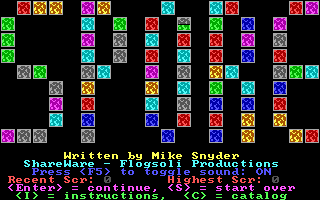 W
WSpore is an MS-DOS video game developed by Mike T. Snyder and published by Flogsoli Productions that fused Breakout with a text adventure, and included spreadsheet puzzles.
 W
WSuper Glove Ball is a game made by Rare in 1990 for the Nintendo Entertainment System, specifically designed to be played with the Power Glove controller. However, it can also be played with a standard NES controller. It was sold separately from the Power Glove.
 W
WSuperball Arcade is a shareware Arkanoid-like video game for Microsoft Windows first released on May 29, 2003 by Canadian developer Cheeky Monkey Software. The game is a sequel to the 2002 game Atomic Superball: The Chicken Edition.
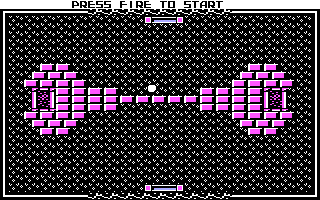 W
WTRAZ is a 1988 Arkanoid clone released by Cascade Games for the Commodore 64, MS-DOS, and ZX Spectrum. TRAZ includes a level editor.
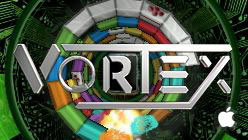 W
WVortex is an iPod game created by Apple Inc. and Kabloom Games. It is an Arkanoid/Breakout clone that has a "looking down perspective" and has bricks arranged in a circular layout.
 W
WWizorb is a role-playing video game created and published by the independent developer Tribute Games. The game was released on the Xbox 360 Xbox Live Marketplace on September 29, 2011. The gameplay is a cross between Breakout and a role-playing game. Wizorb was ported to Microsoft Windows, OS X, and Linux. It was released for Microsoft Windows through Steam on March 14, 2012, with added achievements and cloud storage. Upon release, Wizorb saw favorable reviews from critics, with VentureBeat's Jacob Siegal listing it as one of the top 10 independent video games of 2011.
 W
WWoody Pop , is a ball and paddle game similar to the likes of Breakout and Arkanoid It was originally released exclusively in Japan for the Sega Master System in 1987, before being given an international release on the Sega Game Gear in 1991. The Master System version of the game is designed to be used with the Paddle Control, and will not function correctly with any other controller. It would be the last game released in Japan with the Mark III branding and on a My Card.